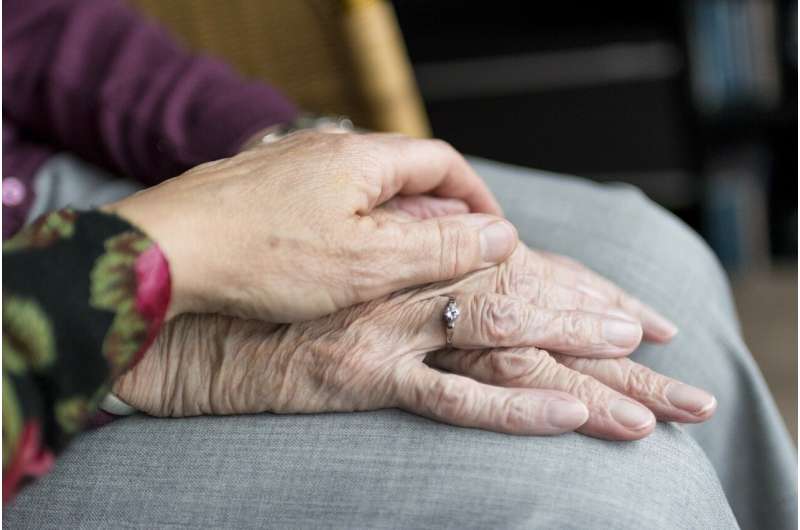Study finds only children are more likely to care for aging parents, but don’t suffer worse mental health


Only children can manage the emotional and psychological demands of caring just as well as those who share duties with siblings, according to UCL researchers.
The new study, published today in Ageing and Society, shows that among adults born in 1946, 1958 and 1970, only children are more likely to provide care to their parents—including bathing and dressing, washing, ironing and cleaning, and paying bills—than those with brothers and sisters. In addition, only children become even more likely to provide care than those with siblings as their parents age.
Co-author Dr. Jenny Chanfreau (UCL Centre for Longitudinal Studies) said, “With the UK population living longer and the responsibility for care for aging parents increasingly falling on their children, only children may find they have to face caregiving alone. As a result, we might expect that those caring for parents would suffer poorer mental health or report lower well-being than those who have siblings to lean on. Surprisingly, our new research finds that they tend to manage just as well as those with brothers and sisters.”
Researchers from the UCL Centre for Longitudinal Studies analyzed data from more than 30,000 adults who are taking part in three of Britain’s birth cohort studies. They examined information reported by participants at different stages between their late 30s and their early 60s on whether they provided informal care to their parents, how many hours per week they gave support, and what types of responsibilities they had. The research team then analyzed data from mental health and well-being assessments participants undertook during middle age.
By their mid-50s, only children were one and a half times more likely to care for their parents than adult children with siblings. In their early 60s, this difference was even starker, with only children more than twice as likely as those with brothers and sisters to provide care. However, only children did not spend any additional time (i.e. hours per week) caring for their parents, on average, than those with siblings.
Adults in their 40s and early 50s who provided care to their parents were likely to have worse mental health or well-being than those who did not have caring duties. But, in their early 60s, the mental health of those caring for parents did not differ to those who did not provide care. Although adult only children were more likely to provide care to their aging parents than those with siblings, the researchers found that the mental health and wellbeing of the two groups was similar.
Co-author Dr. Alice Goisis (UCL Centre for Longitudinal Studies) said, “With the pressures faced by caregivers, it is reassuring to find that as adults only children cope with caregiving just as well as children with siblings, who can share the responsibility, time, and costs. With one child families increasing in recent generations, this research should give comfort to only children and their parents who might worry about future pressures related to caring.”
Only children made up 14% of the 1946 birth cohort, 7% of the 1958 group, and 8% of those born in 1970, corresponding with national trends reported by the Office for National Statistics (ONS). Looking ahead to potential future parent-caregivers, ONS data shows that 18% of women born in 1974 had one child by age 45.
The researchers also examined the caregiver’s gender and the gender of their siblings, finding that caring responsibilities and time spent caregiving tended to vary for women and men. Daughters were more likely to provide personal care to parents, such as assistance with bathing, dressing and feeding, while sons were more likely to provide help with practical tasks, such as repairs and paying bills.
Among women, after only daughters, those with brothers were the next most likely to provide care. Among men, only sons were most likely to care for parents, while those with at least one sister were the least likely to provide care. Only daughters in their mid-50s reported the most time caring, on average, while men with at least one sister reported the least time, on average, in their early and mid-50s.
Dr. Chanfreau said, “In the UK, formal care for older people is not always affordable, so care provision relies heavily on informal caregivers, such as spouses and children. This new research points to worrying inequalities in care, with daughters more likely than sons to provide support to parents. This raises concerns about the psychological and emotional pressures faced by caregivers, especially women.
“With the government promising to invest significantly in social care in the coming years, careful consideration is required about how relevant support can help reduce such inequalities, so all caregivers are able to balance the pressures of supporting parents with their everyday lives.”
Source: Read Full Article